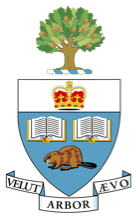The ability to understand and predict the carbon cycle in the context of a changing climate is an important
scientific goal with implications for global climate policy. Various approaches including models, atmospheric
CO2 or CH4 measurements or flux measurements can be applied, with different methods offering advantages at different
spatial and temporal scales. The integration of multiple data streams with
predictive Earth system models in comprehensive carbon-cycle data assimilation systems is a key component
of strategies to achieve this goal. Combining surface, tower and aircraft CO2 and CH4 measurements with global
measurements from new and upcoming satellite missions may enable flux estimation at the temporal and spatial
scales needed for monitoring and verification, provided that the strengths and limitations of each data set and
the modeling techniques are thoroughly understood.
The goal of this workshop is to engage some of the Canadian research community involved in various aspects of greenhouse gas flux estimation in scientific discussions that may contribute to the development of the Environment and Climate Change Canada's Carbon Assimilation System (EC-CAS). This system is being developed in order to obtain routine estimates of global and regional fluxes of greenhouse gases and is similar in intent to those being developed in the US, Europe, and Japan. The first workshop in this series was held on April 13, 2012, the second one was on April 8-9, 2013, the third workshop was on May 28-29, 2014 and the fourth workshop was on May 21-22, 2015. This is the fifth workshop in the series and will be two days in length and, as before, participants are expected to come mainly from Government and Academia in Canada as well as from abroad. This year's confirmed invited speakers include:
David Baker , CIRA/CSU, Boulder, Colorado
What do column CO2 measurements from OCO-2 tell us about the global carbon cycle?
Lori Bruhwiler , NOAA/ESRL, Boulder, Colorado
Mysteries of the global methane budget
Merritt Turetsky , U Guelph, Guelph, Ontario
The effects of disturbance on landscape change and ecosystem carbon fluxes across Canada's north
In addition to providing a status update of the EC-CAS project, the workshop will include contributed talks on various topics such as the greenhouse gas observing system, a priori fluxes, source inversions and emissions verification. As this is a workshop, ample time will be allotted for discussions. Note that space (in the room and program) is limited so please register early .
To participate in this workshop by attending or contributing a talk, please follow the instructions under the "Scientific Program" tab.
Invited speakers of previous workshops:
The goal of this workshop is to engage some of the Canadian research community involved in various aspects of greenhouse gas flux estimation in scientific discussions that may contribute to the development of the Environment and Climate Change Canada's Carbon Assimilation System (EC-CAS). This system is being developed in order to obtain routine estimates of global and regional fluxes of greenhouse gases and is similar in intent to those being developed in the US, Europe, and Japan. The first workshop in this series was held on April 13, 2012, the second one was on April 8-9, 2013, the third workshop was on May 28-29, 2014 and the fourth workshop was on May 21-22, 2015. This is the fifth workshop in the series and will be two days in length and, as before, participants are expected to come mainly from Government and Academia in Canada as well as from abroad. This year's confirmed invited speakers include:
What do column CO2 measurements from OCO-2 tell us about the global carbon cycle?
Mysteries of the global methane budget
The effects of disturbance on landscape change and ecosystem carbon fluxes across Canada's north
In addition to providing a status update of the EC-CAS project, the workshop will include contributed talks on various topics such as the greenhouse gas observing system, a priori fluxes, source inversions and emissions verification. As this is a workshop, ample time will be allotted for discussions. Note that space (in the room and program) is limited so please register early .
To participate in this workshop by attending or contributing a talk, please follow the instructions under the "Scientific Program" tab.
Invited speakers of previous workshops:
- 2015:
- Lesley Ott , (NASA/GMAO), Greenbelt, Maryland
Highlights in Carbon Modeling from NASA's Global Modeling and Assimilation Office - Dennis Baldocchi , (UC Berkeley), California
What is Annual Ecosystem Photosynthesis? An Exploration of Data and Models from Ecosystem to Globe
- Lesley Ott , (NASA/GMAO), Greenbelt, Maryland
- 2014:
- Scott Denning , (Colorado State University), Fort Collins, Colorado
Carbon Cycle SciFi: Comprehensive Carbon Data Assimilation in a Data-Rich World - M. Altaf Arain , (McMaster University), Hamilton, Ontario
Carbon exchanges from sites to global scale
- Scott Denning , (Colorado State University), Fort Collins, Colorado
- 2013:
- Andy Jacobson , (Earth Systems Research Laboratory, NOAA), Boulder
Better Each Year: Balancing Operations and Research in CarbonTracker - Werner Kurz , (Canadian Forest Service, NRCan), Victoria, B.C.
Canada’s National Forest Carbon Monitoring Accounting and Reporting System: Status and Plans - Jing Chen , Dept. of Geography, U of Toronto, Ontario
A Global Carbon Assimilation System for China
- Andy Jacobson , (Earth Systems Research Laboratory, NOAA), Boulder
- 2012:
- Seung-Jong Baek , (McGill University), Montreal, Quebec
Latest developments in the EC Ensemble Kalman Filter - Tim Lynham , (Natural Resources Canada), Sault Ste. Marie, Ontario
Development of a Forest Fire Emissions Reporting System - Jing Chen , (University of Toronto), Toronto, Ontario
Global atmospheric inversion of the surface carbon flux with 13C constraint
- Seung-Jong Baek , (McGill University), Montreal, Quebec

